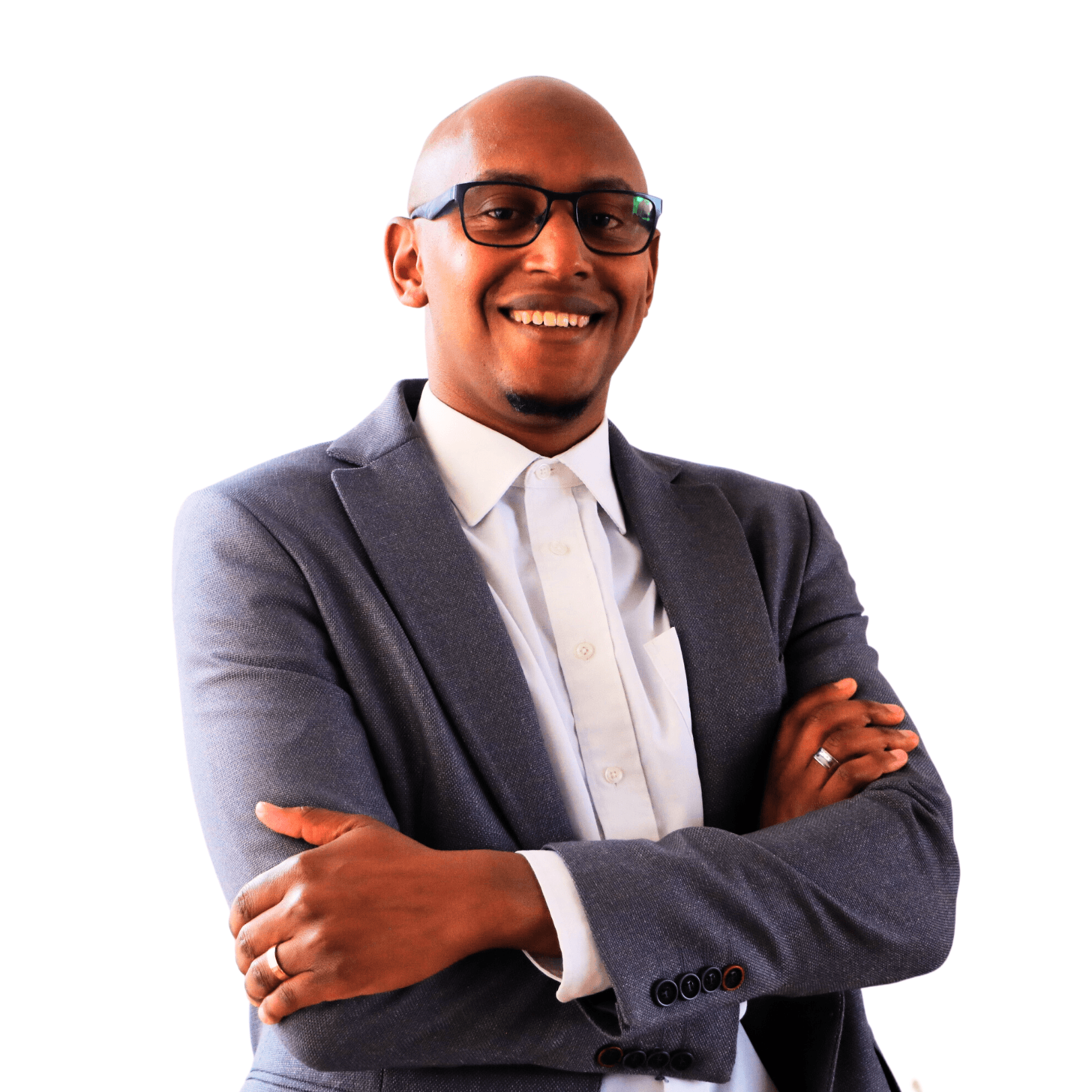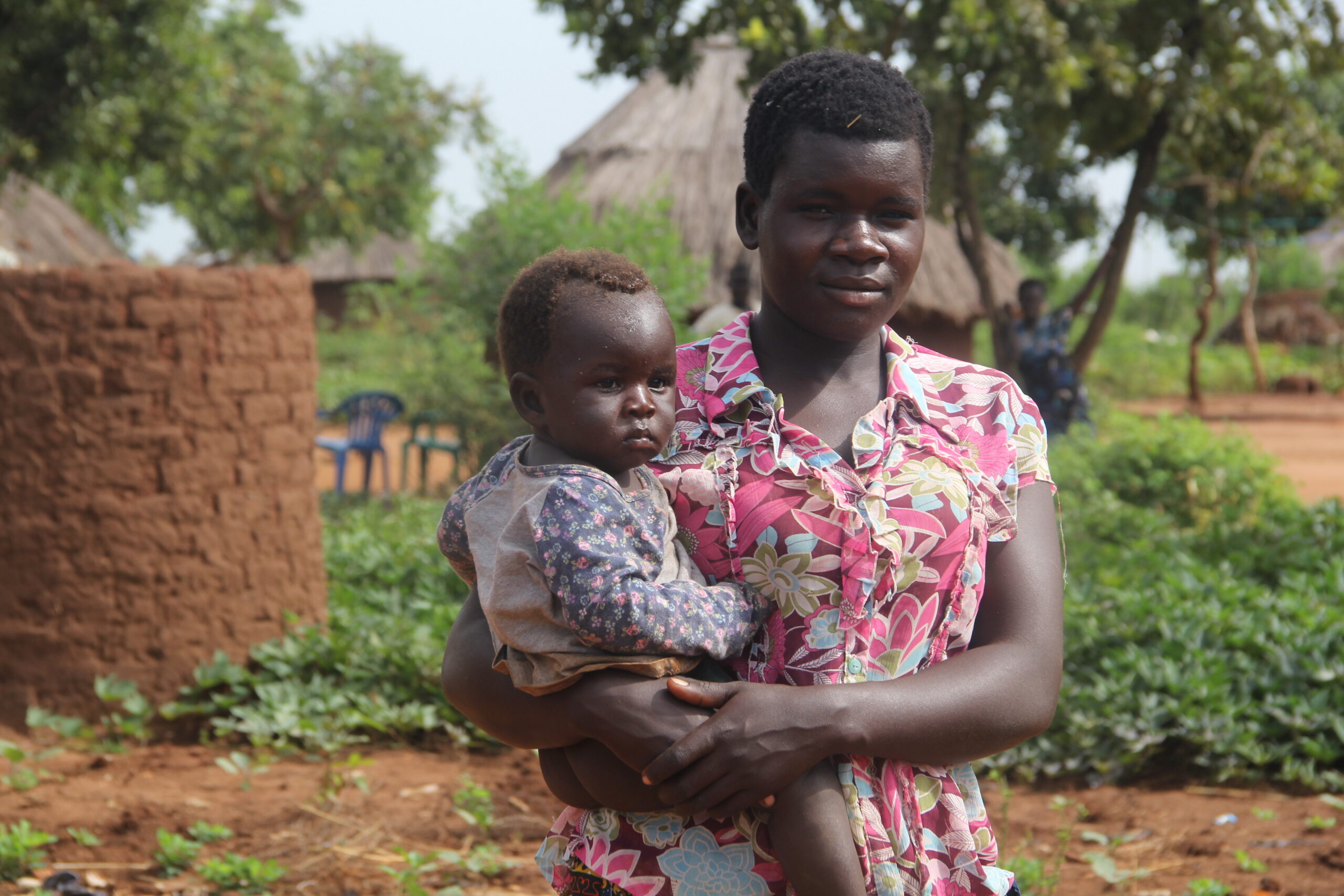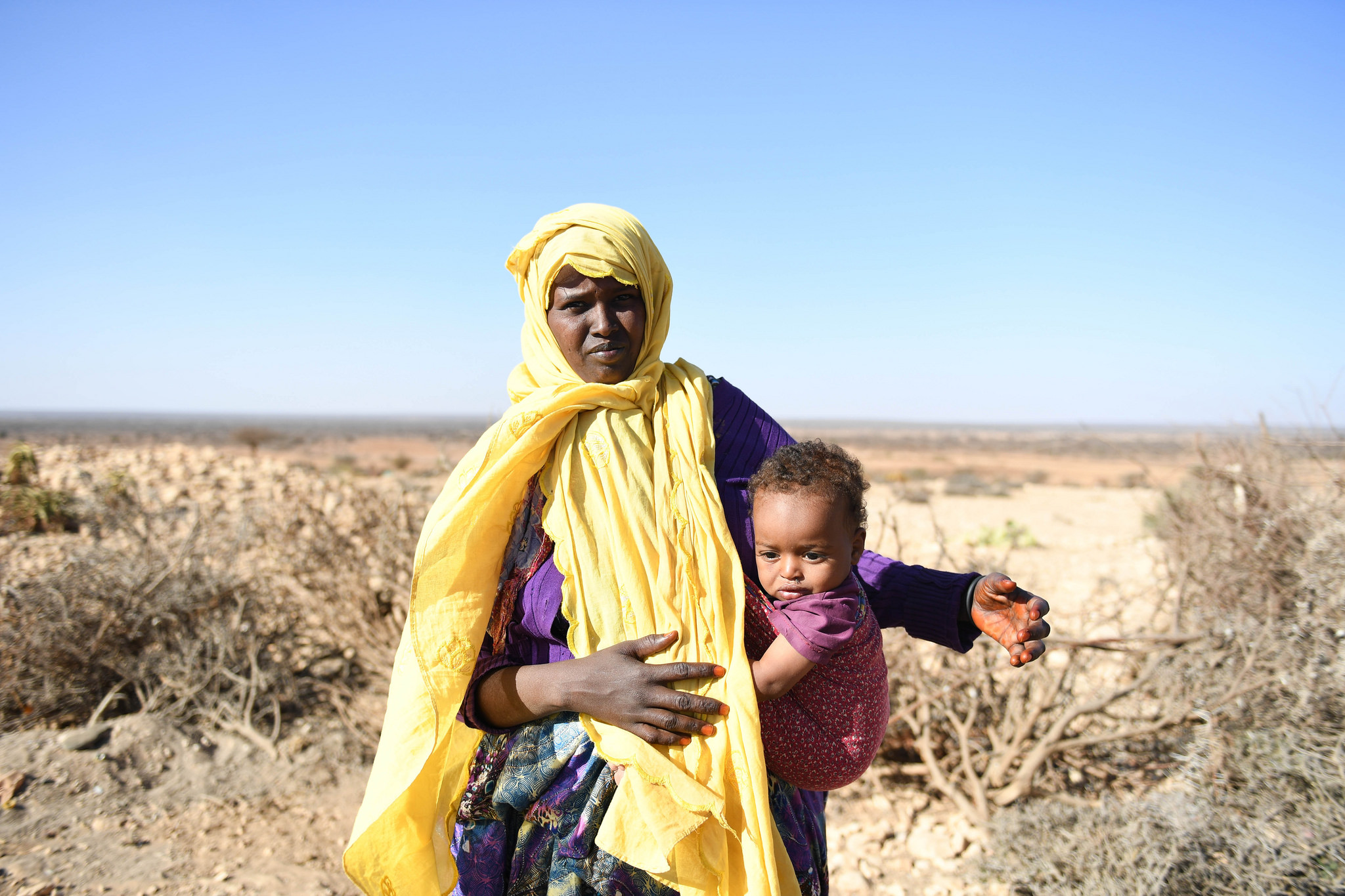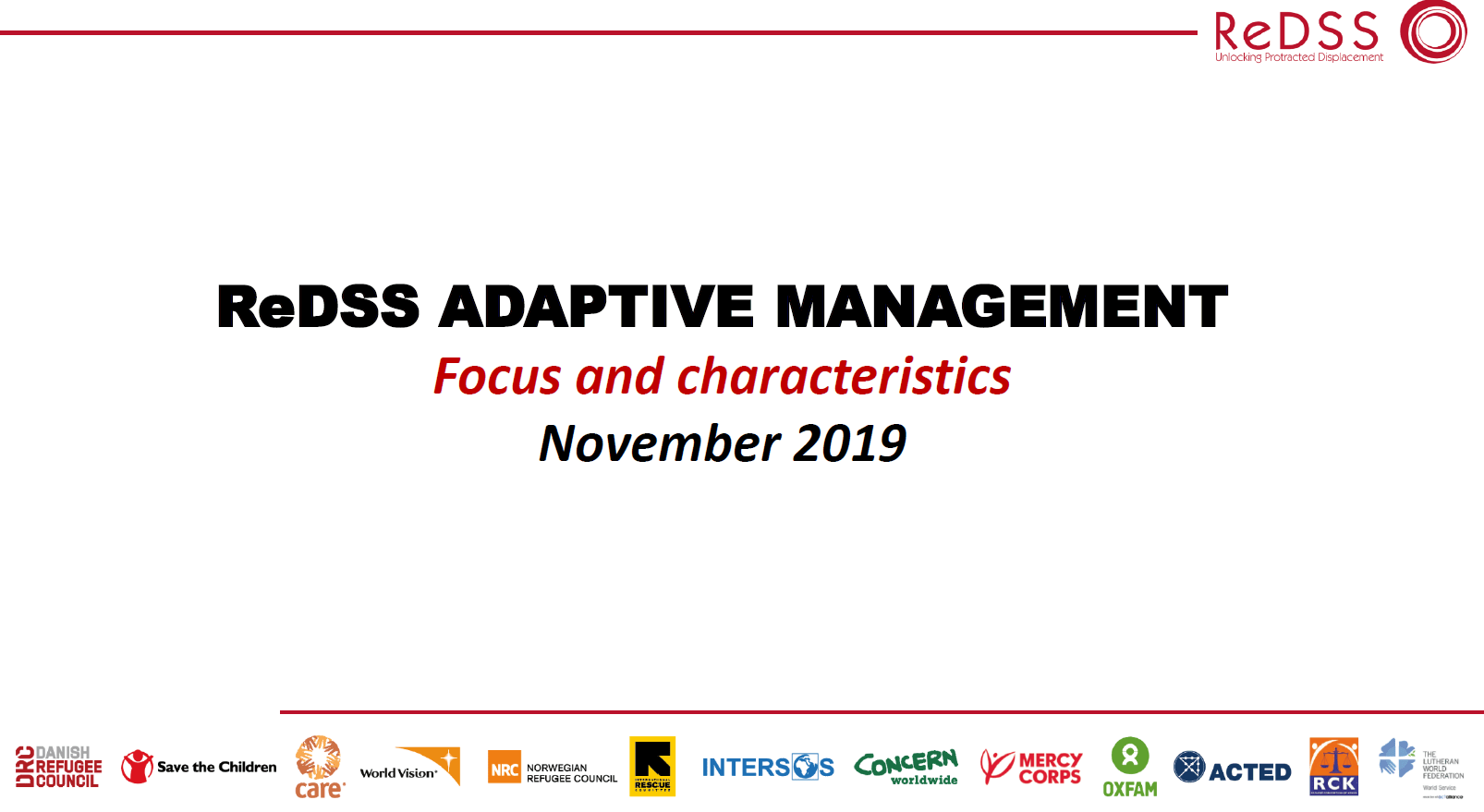In 2023, The Regional Durable Solutions Secretariat (ReDSS) engaged Meraki Labs, a consulting firm whose mission is to ensure that the realities facing migrants and displaced people are reflected in policy and programming, in researching inclusion and participation among Somalia’s marginalized communities. The study, which was undertaken in Kismayu, Baidoa, and Mogadishu under Danwadaag’s USAID scaling solutions project, aimed to shed light on strategies that aid actors can employ to support marginalized communities to meaningfully participate in decision-making processes that impact their lives.
We are pleased to share the highlights in this blog, as well as the research brief and the implementers’ brief curated from the report.
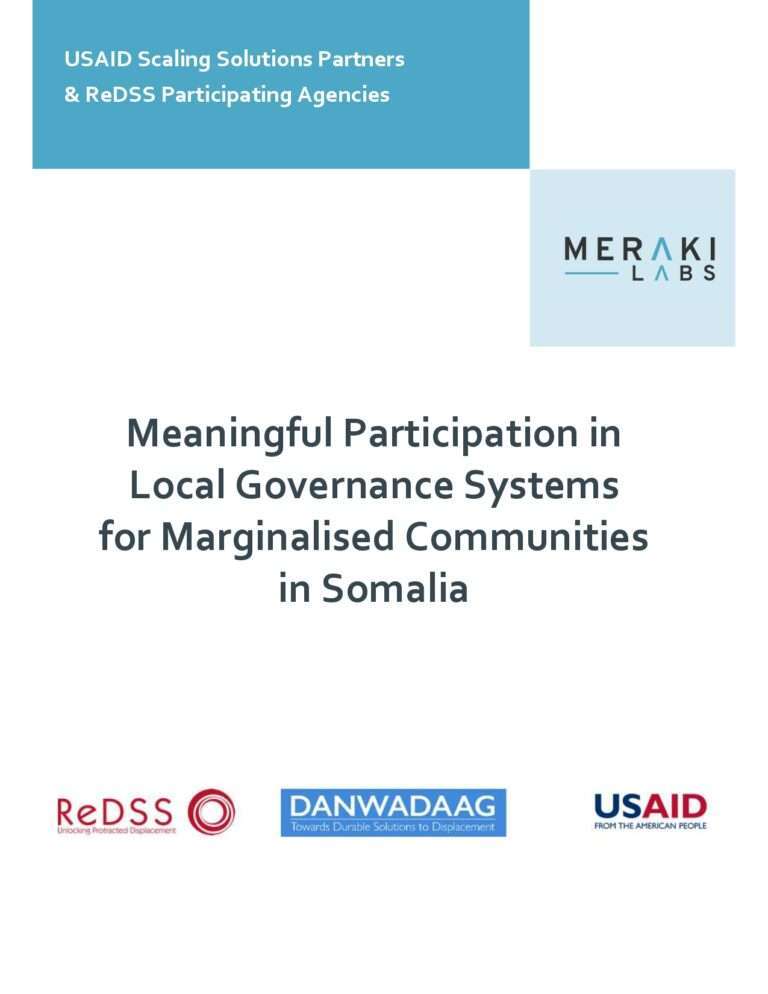
Meaningful Participation in Local Governance Systems for Marginalised Communities in Somalia (Research Brief)
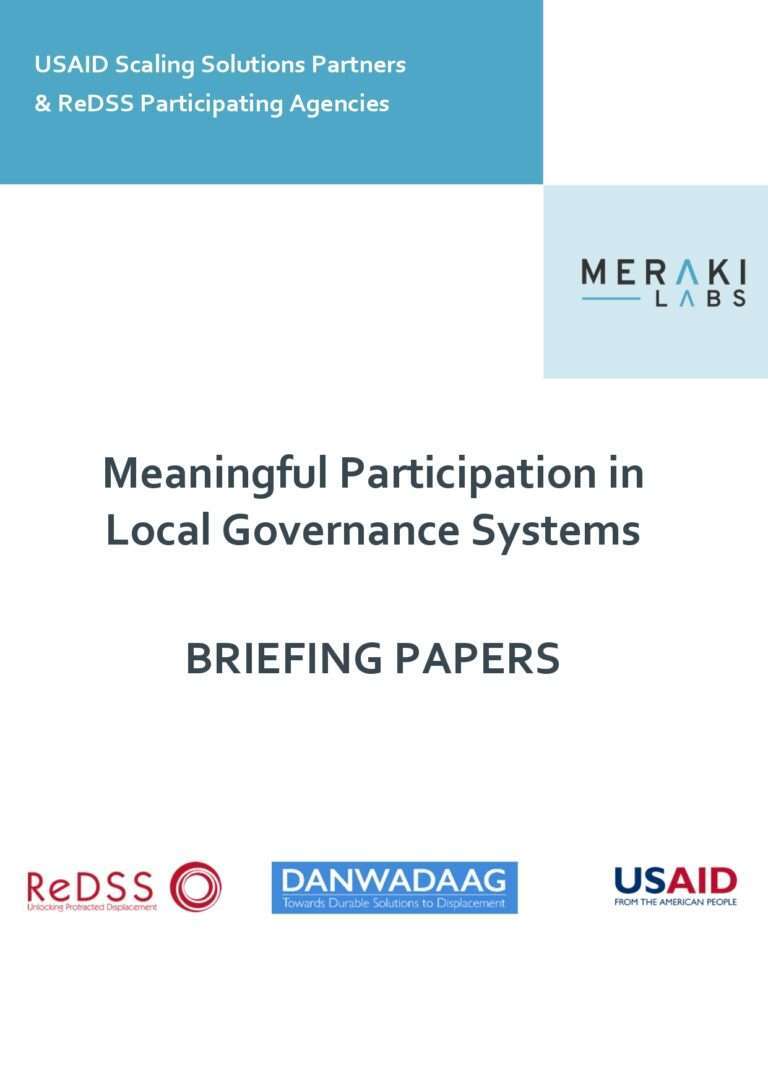
Meaningful Participation in Local Governance Systems for Marginalised Communities in Somalia (Partners' Brief)
Understanding the Roots of Marginalization
The report delves into the contextual foundations of marginalization in Somalia, which are deeply rooted in the complex clan dynamics that may not be immediately apparent to outsiders but intricately intertwine with formal governance and religious systems. To gauge the extent of inclusion or exclusion of communities, the report operationalizes the Urban Inclusivity Index developed by Ken Menkhaus and Ismahan Adawe. This index measures communities’ level of access to 12 indicative rights across various locations.
At the heart of the report lies a framework that aid actors can adopt to foster meaningful participation among marginalized groups. This framework comprises three key elements:
- Inclusive Forums: The presence of forums to which marginalized communities have direct access, enabling their voices to be heard.
- Incentives for Inclusion: Incentives for dominant groups to actively seek the inclusion of marginalized groups in these forums, recognizing the value they bring.
- Resources for Bargaining: Providing marginalized groups with the necessary resources to effectively negotiate and bargain for their participation with dominant groups.
By applying this lens to policies and programming, aid actors can pave the way for greater inclusion of marginalized communities in Somalia.
Key Findings and Insights
1. The Duality of the Clan System in Somalia
Somalia’s state collapse has left a complex legacy. On one hand, clan networks have become vital sources of protection and resources, filling the void left by formal social safety nets. Clans offer displaced communities a sense of belonging and support for survival. However, this same system also fosters marginalization. The “clanization of territory” concentrates power in the hands of dominant clans, who can limit the rights of outsiders within their controlled areas. This creates a two-tiered system of residents with full rights versus those deemed “guests” with limited access.
Addressing marginalization through formal systems alone may prove ineffective due to the deep-rooted clan system. However, simply labelling the system as inherently unjust overlooks its crucial role in Somali life, including for displaced communities.
2. Exploring Somalia’s Multilayered Decision-Making Landscape
Somalia’s decision-making processes involve a complex interplay of three main social and political systems: clan, religious, and formal government.
- Clan System: The most prevalent, serving as a primary source of protection and resources due to the state’s limited reach. Clan elders hold significant sway.
- Religious System: Religious leaders wield moral authority and can influence decisions, but their influence is checked when it clashes with clan interests.
- Formal Government: Government officials, often chosen through the clan system, are sometimes perceived as clan representatives rather than figures with popular mandates.
This multilayered structure presents both challenges and opportunities, and the key to unlocking opportunities for greater participation for marginalized communities lies in not only understanding these power dynamics but also applying that understanding in aid efforts.
3. Limited Rights for Internally Displaced Persons (IDPs)
Internally displaced persons face significant challenges in accessing basic rights compared to their host communities. This disparity stems from their exclusion from decision-making processes in their new settlements. Often belonging to different and less powerful clans than the host population, IDPs are viewed as temporary “guests” with limited rights, rather than residents with full privileges. The report’s findings consistently demonstrate this pattern across all study locations: IDPs have less access to the 12 indicative rights compared to both the host communities and other minority groups residing there.
4. Negotiation: The Path to Inclusion in Somalia
Social exclusion in Somalia need not be a permanent reality. Through a process of negotiation, marginalized communities can work towards gaining equal rights with dominant clans. History provides encouraging examples. Clans that were once excluded from decision-making processes or faced limited access to resources have successfully used collective bargaining to achieve greater inclusion. By coming together and presenting a unified front, they were able to negotiate with dominant groups and secure a more equitable distribution of resources and rights. This approach demonstrates the power of negotiation as a path towards inclusion in Somali society.
5. Engaging All Social Systems for Meaningful Participation in Somalia
Achieving meaningful participation in Somalia necessitates engaging all social systems – clan, religious, and formal government – within a well-defined incentive and resource structure. This two-pronged approach is crucial:
- Incentives for Dominant Groups: Dominant groups must be incentivized to include marginalized groups in decision-making processes. This can be achieved by fostering an environment where they recognize the value-added marginalized groups bring to the table. Marginalized groups often possess unique skills, experiences, and perspectives that can benefit the entire community. Their inclusion can lead to more informed and representative decision-making, fostering a sense of shared ownership and responsibility for the well-being of Somalia. Additionally, by incorporating marginalized voices, dominant groups can tap into a broader range of talent and resources, leading to more innovative and effective solutions to community challenges.
- Resources for Marginalized Groups: Marginalized groups need access to resources to effectively negotiate their inclusion. These resources can take several forms. Training in negotiation skills can equip them with the tools and tactics to advocate for their interests from a position of strength. Access to legal representation can ensure their rights are protected throughout the negotiation process. Support in building a unified voice can help them present a strong, collective front to dominant groups. Additionally, resources for capacity building can empower marginalized groups to address the root causes of their marginalization. This could include education and training programs that equip them with the skills and knowledge needed to compete for jobs, participate in political processes, and advocate for their rights. By investing in the capacity of marginalized groups, the overall well-being of Somali society is strengthened.
The Path to Durable Solutions in Somalia
This report offers a new perspective on the path to achieving durable solutions in Somalia. It emphasizes that securing rights is a process built on negotiation and requires engagement with all three key social and political systems: clan, religious, and formal government. It also reminds us that while traditional models for inclusion often place the sole responsibility on the state, the current realities necessitate a more nuanced approach as evidenced by communities’ reliance on the clan system to fill the gaps. This understanding demands a re-evaluation of engagement strategies for durable solutions. Aid actors must move beyond traditional models and explore effective collaboration with all three social systems. The implementers’ briefs provided begin to frame this for different audiences, and the framework provides a foundation for a broader realignment of aid efforts to Somalia’s socio-political landscape and ultimately, the aspirations of marginalized communities.
